Breast Reconstruction in Koh Samui
Search and Compare the Best Clinics and Doctors at the Lowest Prices for Breast Reconstruction in Koh Samui

Find the best clinics for Breast Reconstruction in Koh Samui
With Medijump you can browse 1 facilities offering Breast Reconstruction procedures in Koh Samui. The cheapest price available is $1,667 in Bangkok. And for the cheapest price globally, prices start from $477 in India.
Breast Reconstruction in Thailand
Price: $ 1,667
Breast Reconstruction in Bangkok
Price: $ 1,667
India offers the best prices Worldwide
Price: $ 477
Thitiwat Clinic -The leader Aesthetic Surgery & Skin Laser Center, located in Laem Sor, Koh Samui, Thailand offers patients Breast Reconstruction procedures among its total of 22 available procedures, across 3 different specialties. Currently, there's no pricing information for Breast Reconstruction procedures at Thitiwat Clinic -The leader Aesthetic Surgery & Skin Laser Center, as all prices are available on request only, whilst the national average price is approximately $5,590. There is currently a lack of information available on the specialists practicing at the Clinic, and they are accredited by ASPS - American Society of Plastic Surgeons
Compare Before & After Photos of _procedure_photos.phpBreast Reconstruction
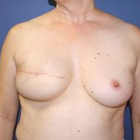
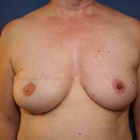
Front view
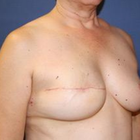
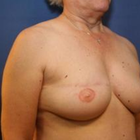
Half-side view
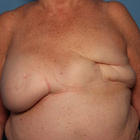
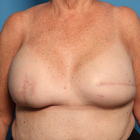
Front view
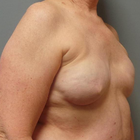
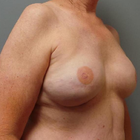
Half-side view
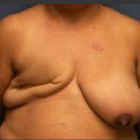
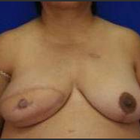
Front view
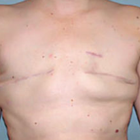
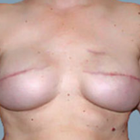
Front view
WHY US?
At Medijump, we're making medical easy. You can search, compare, discuss, and book your medical all in one place. We open the door to the best medical providers worldwide, saving you time and energy along the way, and it's all for FREE, no hidden fees, and no price markups guaranteed. So what are you waiting for?

Free

Best Price

Widest Selection

Risk-Free
What you need to know about Breast Reconstruction in Koh Samui
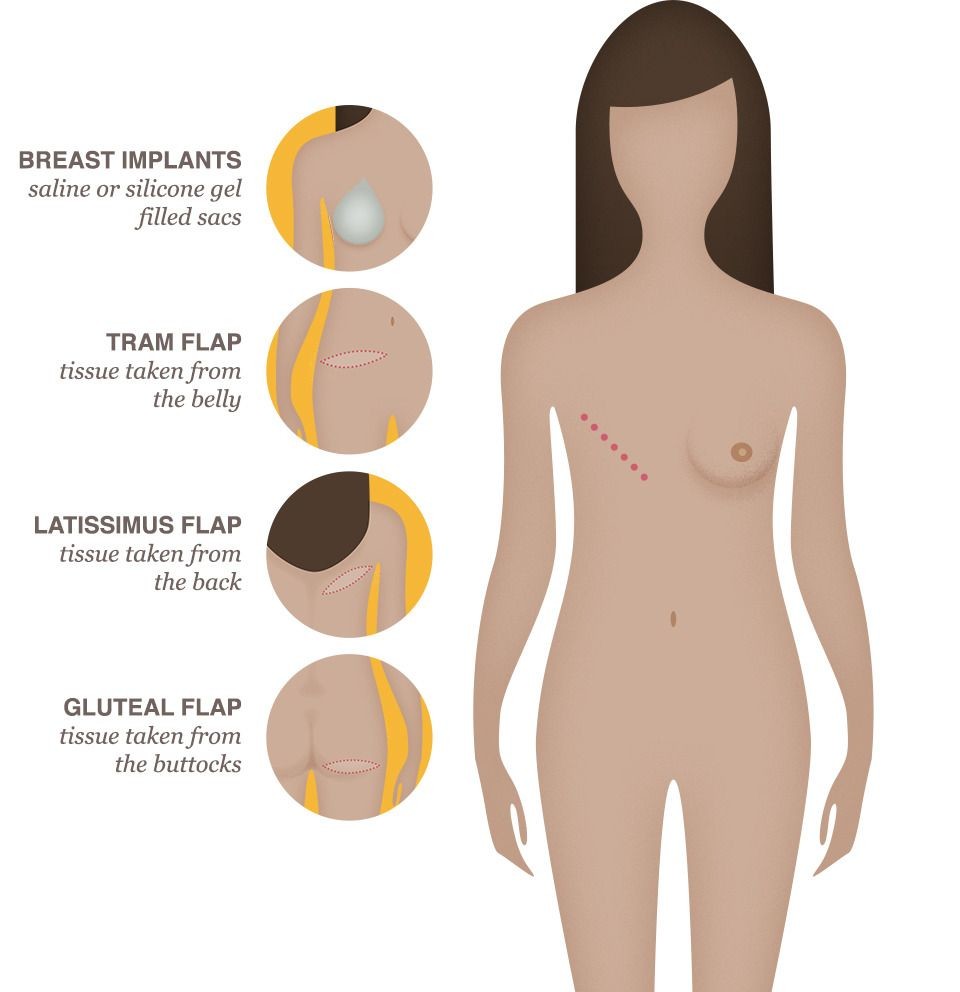
Breast reconstruction is a significant surgery undertaken to rejuvenate the physical form of a woman's chest after losing one or both breasts to cancer or another disease. In Koh Samui, medical centres are well-equipped with top-tier talent in plastic surgery to facilitate this intricate procedure. Every woman's journey is different, and her treatment plan is personalized, considering her unique circumstances and needs.
It's heartening to know that breast cancer treatments like chemotherapy or radiation therapy aren't impeded by reconstruction. Moreover, this surgery doesn't spike the risk of cancer coming back. Undeniably, breast reconstruction is a major surgery with inherent risks, including chances of infection, complications with wound healing, and potential dilemmas related to implants.
What is the cost of Breast Reconstruction in Koh Samui?
Undergoing surgery like Breast Reconstruction brings along a financial commitment. The expense varies extensively, depending on many factors like the complexity of the procedure, the medical professional performing the surgery, the hospital's facility, and the region, amongst others. Generally, the cost might range between $15,000 to $50,000, including multiple surgeries or intricate techniques within this estimate.
Thankfully, in many cases, insurance plans cover such surgical procedures, especially given mandates like the Women's Health and Cancer Rights Act of 1998 in the U.S. Still, out-of-pocket expenses associated with co-payment or deductibles can add up. It's recommended to navigate these aspects with your insurance provider and your chosen healthcare facility in Koh Samui.
What does a Breast Reconstruction Procedure Involve?
Breast reconstruction generally happens in stages, starting with the most complex first, which may either occur at the same time as the mastectomy or later, based on the individual’s specific health conditions or treatment plan.
Two main techniques are employed in breast reconstruction. One is the use of an implant, saline, or silicone to recreate the breast shape. Two, autologous or flap reconstruction where tissue from the patient’s body like the abdomen or thigh is relocated to recreate the breast shape. The method selected is dependent on individual factors like the patient’s health, personal choice, cancer type, and stage.
After the primary surgery and post an adequate healing period, the surgeon performs a second procedure to recreate the nipple and areola. Later, to give it a natural look, the nipple-areola complex is tattooed. Remember that although it is a common procedure, complications might arise involving reaction to anaesthesia, bleeding, infection, poor healing or the need for further interventions.
How Long Should I Stay in Koh Samui for a Breast Reconstruction Procedure?
Post-breast reconstruction surgery, patients typically stay in the hospital for two to five days. However, if the reconstruction was done immediately after the mastectomy, the stay could extend from three to six days.
Overall, a patient should expect to remain in Koh Samui for approximately two weeks post-surgery. This allows enough time for necessary follow-ups and to address any complications, if they arise. As with any major surgical procedure, do not hasten the healing process.
What's the Recovery Time for Breast Reconstruction Procedures in Koh Samui?
The recovery timeframe for breast reconstruction procedures in Koh Samui varies from patient to patient. Generally, for implant-based procedures, patients may take about four to six weeks to recuperate before they return to normal routines. For more complex autologous techniques, particularly those using abdominal tissue, patients might require six to eight weeks for recovery.
Recovering patients need to temper their activities during this period. Avoid lifting heavy objects and defer strenuous exercise until your physician gives a clear signal. Medical assistance should be promptly sought if any discomforting symptoms like chronic pain, redness or swelling surface.
What's the Success Rate of Breast Reconstruction Procedures in Koh Samui?
Medical success cannot just be measured in terms of complication-free postoperative progress or longevity of implants used in breast reconstruction. Patient satisfaction with their surgery, their psychological well-being following the operation, their perception of body image, and their quality of life post-surgery are equally important factors to consider. Studies indicate that between 85% to 90% of women who have undergone breast reconstruction are satisfied with the long-term results.
In Koh Samui, dedicated hospitals and healthcare facilities strive to offer high-quality treatment, ensuring the best possible surgical outcomes using progressive technology and experienced professionals. Still, everyone's response to surgery varies, and outcomes depend on factors such as overall health, age, body type, and compliance with surgical advice.
Are there Alternatives to Breast Reconstruction Procedures in Koh Samui?
Indeed, there are alternatives to breast reconstruction in Koh Samui. The journey of every woman is unique and how she chooses to deal with the loss of a breast, or both, is a highly personal decision. Alternatives include:
- Breast Prostheses or Forms: They are silicone forms that imitate the appearance and feel of natural breast tissue. They come in diverse sizes, shapes and colours to closely match the woman's skin tone.
- Flat Closure: In this method, the surgeons sew up the chest wound smoothly, without constructing a breast mound. This option appeals to women who choose not to have more surgeries or body implants.
- Opting not to undergo reconstruction at all, also termed as "going flat: This method exhibits the woman's choice to live comfortably with her new body shape without artificial substitutes or further surgeries. It is a fully personal decision deserving respect and support.
Each of these options has pros and cons, and the choice depends on the woman’s personal preference, health status, lifestyle, and perception of her body. Regardless of the choice, it’s important to regularly monitor breast health and engage in practices that promote overall wellness.
What Should You Expect Before and After the Breast Reconstruction Procedure?
Before the surgery, comprehensive discussions with the surgeon will take place to understand treatment objectives, outcomes, and possible complications. Preoperative tests, lifestyle modifications, and nutritional advice may form a part of the preparatory process.
Postoperative care is equally important: discomfort, swelling, and bruising are normal and subside over time. Pain management strategies will be provided to help you manage discomfort effectively. Your surgeon will provide personalised guidance on caring for your surgical site, usage of medications, and physical activities.
What sort of Aftercare is Required for Breast Reconstruction Procedures in Koh Samui?
The following points should be considered post-operation:
- Follow the instructions given by your doctor and take your medicines as and when prescribed.
- Consult a nutritionist for a diet plan. A healthy diet helps you recover faster.
- Do not wear a padded or underwire bra until allowed by your doctor.
- Use surgical bras in the early few days after the surgery.
- Avoid excessive unnecessary movement of your breasts.
- Do not lift heavy objects and children - it could stretch on your stitches.
- Change your bandage whenever it gets dirty. Germs can cause infection.
- Do not take a bath when the bandages are still intact. A wet bandage can also be the cause of infection.
- Abstain from sexual activity for at least 6 weeks.
- Take rest - give yourself time to recover.
How Do I Prevent Cancer from Recurring?
Preventing cancer recurrence largely revolves around a balanced, healthy lifestyle coupled with regular medical check-ups. Regular exercise, maintaining a healthy weight, and eating nutritiously can contribute to cancer prevention. Smoke cessation and limiting exposure to secondhand smoke are crucial for both prevention and postoperative recovery.
Regular breast self-examinations, as well as mammograms and follow-up visits, are critical for early detection of any recurrence. Stress management techniques like yoga, meditation, and spending time in nature can also play an essential role in overall health.
Your medical team in Koh Samui is there to support you, offering advice tailored to your individual health status and medical history. Remember, proactive health checks are key to maintaining overall health and preventing the recurrence of diseases like cancer.
What is the ideal time to have Breast Reconstruction surgery after a Mastectomy in Koh Samui?
The decision regarding when to have Breast Reconstruction following a Mastectomy in Koh Samui is largely based on the individual's health status, treatment plan, personal preferences, and discussions with the oncology team. Breast reconstruction can be done at the time of mastectomy (immediate reconstruction) or at a later date (delayed reconstruction). Immediate reconstruction might offer psychological benefits and less overall surgery since both procedures are done together. Yet, if additional treatments such as radiation therapy are required post-mastectomy, opting for delayed reconstruction could be advisable to avoid risks posed by radiation to the new construct.
Remember that deciding on the timing of breast reconstruction is a personal choice and should be made in consultation with your healthcare providers. They can provide specific guidance based on your health condition and treatment plan.
How Will Breast Reconstruction in Koh Samui Impact My Routine Mammograms and Breast Cancer Detection?
Breast reconstruction surgery may impact the way routine breast cancer screenings are conducted. After a mastectomy with or without reconstruction, women usually don't need routine screening mammograms on the treated side since all breast tissue has been removed. However, they would need routine mammograms for the untreated breasts.
If you've had reconstruction using your own body tissue, your surgeon or oncologist will guide you on whether or not you'll require mammograms on the reconstructed breast. Remember, mammograms can still be performed on reconstructed breasts, and self-breast exams should be a regular part of your health routine.
Whilst the information presented here has been accurately sourced and verified by a medical professional for its accuracy, it is still advised to consult with your doctor before pursuing a medical treatment at one of the listed medical providers
No Time?
Tell us what you're looking for and we'll reachout to the top clinics all at once
Enquire Now

Popular Procedures in Koh Samui
Prices Start From $497

Prices Start From $208

Prices Start From $834

Prices Start From $500

Prices Start From $93

Prices Start From $85

Recommended Medical Centers in Koh Samui for Breast Reconstruction

- Interpreter services
- Translation service
- Religious facilities
- Medical records transfer
- Medical travel insurance
- Health insurance coordination
- TV in the room
- Safe in the room
- Phone in the room
- Private rooms for patients available

- Interpreter services
- Translation service
- Religious facilities
- Medical records transfer
- Medical travel insurance
- Health insurance coordination
- TV in the room
- Safe in the room
- Phone in the room
- Private rooms for patients available

- Interpreter services
- Translation service
- Religious facilities
- Medical records transfer
- Medical travel insurance
- Health insurance coordination
- TV in the room
- Safe in the room
- Phone in the room
- Private rooms for patients available

- Interpreter services
- Translation service
- Religious facilities
- Medical records transfer
- Medical travel insurance
- Health insurance coordination
- TV in the room
- Safe in the room
- Phone in the room
- Private rooms for patients available

- Interpreter services
- Translation service
- Religious facilities
- Medical records transfer
- Medical travel insurance
- Health insurance coordination
- TV in the room
- Safe in the room
- Phone in the room
- Private rooms for patients available

- Interpreter services
- Translation service
- Religious facilities
- Medical records transfer
- Medical travel insurance
- Health insurance coordination
- TV in the room
- Safe in the room
- Phone in the room
- Private rooms for patients available

- Interpreter services
- Translation service
- Religious facilities
- Medical records transfer
- Medical travel insurance
- Health insurance coordination
- TV in the room
- Safe in the room
- Phone in the room
- Private rooms for patients available

- Interpreter services
- Translation service
- Religious facilities
- Medical records transfer
- Medical travel insurance
- Health insurance coordination
- TV in the room
- Safe in the room
- Phone in the room
- Private rooms for patients available

- Interpreter services
- Translation service
- Religious facilities
- Medical records transfer
- Medical travel insurance
- Health insurance coordination
- TV in the room
- Safe in the room
- Phone in the room
- Private rooms for patients available

- Interpreter services
- Translation service
- Religious facilities
- Medical records transfer
- Medical travel insurance
- Health insurance coordination
- TV in the room
- Safe in the room
- Phone in the room
- Private rooms for patients available
Breast Reconstruction in and around Koh Samui
About Koh Samui
Koh Samui is the second-largest island in the Gulf of Thailand. Referred to as Samui, it was once a “backpacker’s paradise”. It has a bounty of natural wonders as well as man-made attractions such as the mummified monks and the glorious Buddha temples.
The idyllic atmosphere of Koh Samui makes it a perfect destination for both physical and mental wellbeing. It has become a preferred destination for medical tourism in the last few years. Visitors love the location and combine their holidays with medical and spa treatments.
The island has several sophisticated and state-of-art international hospitals such as the Bangkok Hospital, Samui, Bandon International Hospital, Samui International Hospital, and Thai International Hospital, Samui. These hospitals offer affordable and timely medical services to tourists who mainly come to undergo Cosmetic surgeries, Dental Aesthetic procedures, and Sex Reassignment surgeries. Such procedures when carried out in Koh Samui cost 20% to 25% less than the cost of the same treatments in their home countries.
With an eye on the possible growth within the realm of medical tourism, these hospitals are actively broadening the array of medical services they offer. They now furnish other types of procedures including, but not limited to, cardiac surgery, orthopedic surgery, and ophthalmic surgery.
In addition to these extended services, they have a roster of highly competent doctors on hand. These medical professionals are clearly proficient in English, thereby effectively ensuring smooth and easy communication with patients arriving from different parts of the world.
Popular Areas in Koh Samui
Koh Samui is home to many amazing beaches, locations, temples, and markets and some of the major and popular attractions of the island are:
- Ang Thong Marine Park – Ang Thong Marine Park is a group of 42 tiny lush green islands with lofty limestone cliffs, crystal clear beaches, fertile mangroves, waterfalls, hidden coves, and lakes. It is one of the most popular tourist destinations in Koh Samui, and it is easy to see why. The scenery is simply breathtaking.
- Wat Phra Yai – Wat Phra Yai, also known as the Big Buddha Temple, is one of the most iconic landmarks in Koh Samui. The golden-colored, 12-meter tall Buddha statue is hard to miss, and it is a popular pilgrimage site for both locals and tourists.
- Wat Plai Laem – Wat Plai Laem is an active Buddhist temple that is known for its beautiful architecture and its 18-arm image of Guanyin, the Goddess of Mercy and Compassion. It is a popular place to visit for both religious and cultural reasons.
- Na Muang Waterfall – It represents a set of two magnificent waterfalls. These lie about 7.5 miles southeast to Nathon Bay in inland.
- Chaweng and Lamai Beach – Are the two most popular beaches on the island. Chaweng beach is on the east coast of Samui and is known for its nightlife. Lamai beach has a more laid-back atmosphere, but it still has a variety of accommodation, dining & shopping choices, luxurious spas, and tourist spots.
Koh Samui’s other attractions include Hin Ta and Hin Yai, Koh Phangan island, Fisherman’s Village Bophut, Mummy Monk at Wat Khunaram, and the Secret Buddha Garden. Full Moon Party is an all-night beach party held on the Koh Phangan island on full moon day.
Weather and Climate in Phuket
Nestled in a tropical climate, Koh Samui basks in hot and humid weather that extends throughout the year. The humidity level typically straddles between 70 and 85 percent, creating a warm atmosphere indicative of tropical locales. Meanwhile, the average temperature usually hovers around a cosy 28 degrees Celsius.
The island ushers in three distinctive seasons, specifically, hot, dry, and rainy, each of them bringing a unique texture to the overall climate.
- Hot Season is between March and September. The hottest period is March and April when the temperature is 30 degrees Celsius and above. From May to September, it’s like a mini monsoon season with bright sunny days and light showers in the evening.
- Dry Season runs from December to February. The weather is pleasant with light cool winds. The sea is balmy and tourists flock the region during this season.
- Rainy Season is between September and November and the island faces its maximum rainfall with unpredictable weather and rough seas.
Getting Around in Koh Samui
Koh Samui’s airport is a private airport built by Bangkok Airways. It is still the main operator of flights to Samui. Flights to and from Bangkok operate almost every hour. It operates domestic flights to Phuket, Pattaya, and Chiang Mai, and international flights to Singapore, Kuala Lumpur, and Hong Kong every day. Thai Airways to flies between Bangkok and Ko Samui.
Besides Bangkok and Thai Airways, Berjaya Air & Firefly of Malaysia and Silk Air of Singapore also fly to Samui Airport. Air Asia offers a special ‘Island Transfer’ which comprises a flight from Bangkok to Surat Thani or Nakhon Si Thammarat, road travel to the port, and a ferry ride to Koh Samui.
Combined bus and ferry service from Surat Thani rail station or Surat Thani Airport are other options to reach Samui.
Moving around Koh Samui is easy as it is a small island and there are many transport options within Samui. They are songthaews, motorbikes, taxis, and cars and there are no tuk-tuks or buses.
- Songthaews – They are mini pick-up trucks that can accommodate 8-10 adults. They circle the main ring road of Samui and travel through the popular beach towns. The drivers pick you up from anywhere on the road.
- Metered Taxis – You can find them everywhere in the town. Despite having a meter, the drivers don’t use them. You need to bargain and fix a fare before you start your journey.
- Rent a Car – There are major car rental chains to book a car and they have a good collection of vehicles, but can be pricey. Then there are local car operators which are cheaper but can be unreliable.
- Scooter-taxis –These are the cheapest and quickest mode of transport.
Tourist Visas in Koh Samui
Visa Exemption or Visa Waiver Entry – Under a bilateral agreement, Thailand exempts nationals from 55 countries including the UK, USA, and many European countries from obtaining a tourist visa. The only condition is that tourists must have a passport that is valid for at least six months. They can get an arrival stamp on their passports, and stay in the country for a period of 30 days. They need not pay any visa fees, as it is not a visa on arrival rather just an entry stamp.
Visa on Arrival – Nationals from 24 countries like China and India with a valid Passport not expiring before six months, can get a visa on arrival at the airport. The visa permits them a stay of 15 days. There are designated immigration counters at the airport for issuing the visa.
Here are some additional tips for tourists applying for a visa on arrival in Thailand:
- Make sure that you have all of the required documents, including a valid passport, a return flight ticket, and proof of funds.
- Be prepared to pay the visa fee, which is 2,000 Thai baht.
- Be prepared to answer questions about your trip and your purpose for visiting Thailand.
Additional Information
- The main currency of exchange is the Thai Baht. One US dollar is worth about 34.5559 Thai Baht as of 2023. You can also use debit and credit cards.
- Most of the major banks operate in Samui Island. They exchange all major currencies and traveller’s cheques.
- You can find ATMs everywhere in Koh Samui. They accept both local as well as international debit cards. However, they charge you a small transactional fee when you withdraw from your country’s bank account.
- The locals of Koh Samui speak Thai – the official language of Thailand. People also understand and speak English to a certain extent, since the island is a famous tourist destination.
- Buddhism and reverence to the monarchy are striking aspects of Samui culture. It has a large Buddhist Thai population along with a traditional Muslim fishermen community.
- Important public holidays include:
- The Chinese New Year in February
- The Thai New Year (Songkran) in April
- The Festival of Lights (Loi Krathong) in November
- Christmas and New Year
Popular Searches
- Plastic Surgery in Thailand
- Dental Implants in Thailand
- Hair Transplant in Thailand
- Breast Augmentation Thailand
- Gastric Sleeve in Thailand
- Gender Reassignment Surgery in Thailand
- Laser Hair Removal in Bangkok
- Botox in Bangkok
- Dermatology in Bangkok
- Breast Augmentation in Bangkok
- Coolsculpting in Bangkok
- Veneers in Turkey
- Hair Transplant in Turkey
- Rhinoplasty in Turkey
- Stem Cell Therapy in Mexico
- Rhinoplasty in Mexico
- Liposuction in Mexico
- Coolsculpting in Tijuana
- Rhinoplasty in Korea
- Scar Removal in Korea
- Gastric Sleeve in Turkey
- Bone Marrow Transplant in India
- Invisalign in Malaysia
- Plastic Surgery in the Dominican Republic
- Tummy Tuck in the Dominican Republic
- Plastic and Cosmetic Surgery in Poland
- Rhinoplasty in Poland
- Hair Implant in Poland
- Dental Implants in Poland
- IVF in Turkey
